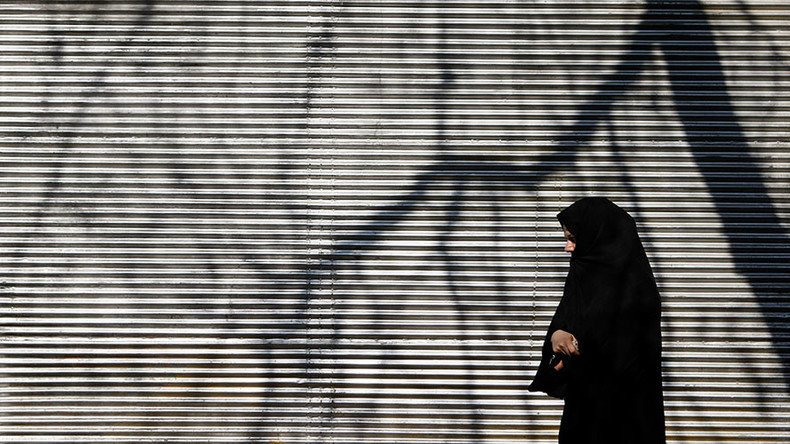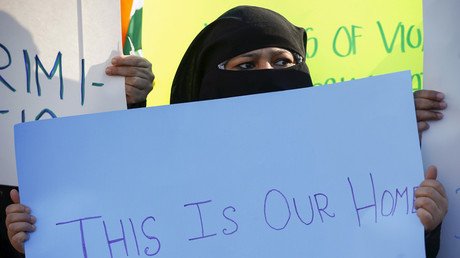Quebec bans face veils in public sector, including on transport, in schools & hospitals

Lawmakers in the Canadian province of Quebec have passed legislation prohibiting anyone from wearing a face-covering veil while providing or receiving municipal services. The ban, following years of debate, has prompted a backlash from local Muslim communities.
Bill 62 aims to "foster adherence to religious neutrality" and is a first ever ban on face veils on the North American continent.
Under the law, which will take effect by July 1, 2018, anyone providing or receiving public services must do so with their face uncovered, unless a cover is needed because of "working conditions or task-related requirements."
This means doctors, nurses and patients, university professors and students, bus drivers and passengers, among others, are all prohibited from wearing face veils. Initially, the bill only applied to provincial services, but recent amendments expanded it to municipal services as well.
While Bill 62 does not specifically target any particular type of religious face veil, Canadian Muslims have immediately hit back at the law, which they think marginalizes Muslim women and infringes on their right to religious expression.
”By tabling this discriminatory legislation, the Quebec government is advancing a dangerous political agenda on the backs of minorities, while pandering to bigoted populism instead of practicing principled governance,” Ihsaan Gardee, executive director of the National Council of Canadian Muslims (NCCM), said in a statement.
”The state is not neutral when it requires a woman to reveal any part of her body against her conscience as a condition to receiving a public service to which she is entitled,” added Eve Torres, NCCM Public Affairs Coordinator.
Defending the ban, Quebec Premier Philippe Couillard earlier told reporters in the province’s National Assembly, that it is merely a matter of “communication, identification and safety.”
“We are in a free and democratic society. You speak to me, I should see your face, and you should see mine. It’s as simple as that,” Couillard said.
Two previous attempts to pass laws that, among other things, banned Muslim face veils, were made in 2010 and 2013, and both failed.
READ MORE: Danish burqa ban: Which EU states is Denmark set to join with face veil restrictions?
While a first for North America, across the Atlantic a number of countries and regions have prohibited face veils to various degrees. France and Belgium banned full face veils in 2011, Bulgaria and the Netherlands in 2016, and Austria in 2017, while Denmark is now gearing up to follow suit. In many countries the laws, which cite religious neutrality and/or public safety concerns, have been contested in courts, but none have been overturned so far.













